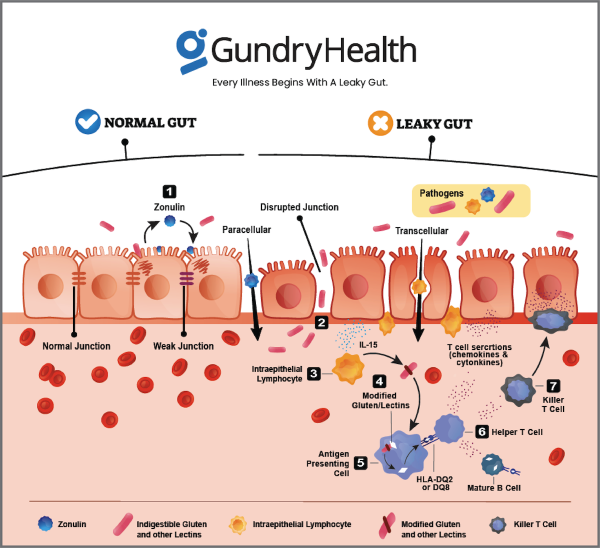Lichen Sclerosus
Lichen Sclerosus is a rare autoimmune condition that causes patchy, white skin that’s thinner than usual. It usually affects the skin around the private areas, but it can also occur on other parts of the body. It can cause itching, pain, bleeding, and scarring.
An autoimmune disease is a condition where the immune system mistakenly attacks healthy cells and tissues in the body. In the case of Lichen Sclerosus, the immune system may be attacking the skin cells, leading to inflammation and damage.
Signs and Symptoms
The symptoms of lichen sclerosus can vary from person to person, but common signs and symptoms include:
- Itching (Pruritus): Intense itching is one of the most common symptoms of lichen sclerosus. The itching can be severe and may lead to discomfort and disruption of daily activities.
- White Patches: The affected skin may become thin, white, and shiny in appearance. These white patches may be smooth or slightly wrinkled and can feel fragile.
- Thinning of the Skin: The skin affected by lichen sclerosus may become thin and delicate, making it more susceptible to tears or easy bruising.
- Pain or Discomfort: In some cases, lichen sclerosus can cause pain or discomfort, especially if there are cracks or tears in the affected skin.
- Bleeding: Due to the thinning of the skin, small tears can occur, leading to minor bleeding.
- Dyspareunia: This term refers to painful sexual intercourse, which can occur if the genital area is affected by lichen sclerosus.
- Change in Appearance: Lichen sclerosus can cause changes in the appearance of the affected skin, including a porcelain-white color and possible scarring over time.
- Inflammation: While the condition is often chronic, there may be periods of exacerbation and remission, where the inflammation and symptoms can worsen and then improve.
- Anus Involvement: In some cases, lichen sclerosus can affect the skin around the anus, causing itching, discomfort, and sometimes difficulty with bowel movements.
It’s important to note that lichen sclerosus can sometimes be mistaken for other skin conditions or infections, so it’s crucial to seek medical evaluation and diagnosis by a healthcare professional if you suspect you have lichen sclerosus or are experiencing any of these symptoms. Early diagnosis and appropriate treatment can help manage the symptoms and prevent potential complications.
What Is Leaky Gut Syndrome and How Does It Cause Autoimmune Diseases?
Leaky gut syndrome is a condition where your intestinal lining becomes damaged and porous, allowing undigested food particles, toxins, bacteria, and other harmful substances to leak into your bloodstream. This triggers an immune reaction, as your body tries to fight off these foreign invaders. However, this also causes chronic inflammation, which can damage your tissues and organs over time.
Leaky gut syndrome is at the root of most autoimmune diseases, such as rheumatoid arthritis, lupus, multiple sclerosis, psoriasis, and of course, Lichen Sclerosus.
Leaky Gut Syndrome and Lectins connection
Lectins are a type of protein found in many plant foods, such as grains, legumes, nightshades, nuts, seeds, and dairy products. Lectins can cause leaky gut syndrome by binding to your gut lining and breaking down the tight junctions that hold it together. Lectins also resemble some of the proteins found in your skin cells, such as keratin. So when lectins leak into your bloodstream, your immune system may attack your skin cells as well. This can lead to Lichen Sclerosus or other skin disorders1
How is lichen sclerosus diagnosed?
Diagnosing lichen sclerosus (LS) typically involves a combination of clinical evaluation, medical history assessment, and sometimes additional tests to confirm the diagnosis and rule out other conditions with similar symptoms. It’s important to consult a healthcare provider, such as a dermatologist or a gynecologist (depending on the affected area), for proper evaluation and diagnosis.
- Physical Examination: A healthcare provider will examine the affected skin areas. They will look for typical signs of lichen sclerosus, including white patches, thinning of the skin, and other characteristic changes.
- Medical History: Your doctor will ask about your medical history, including any symptoms you’re experiencing, when they started, and any previous treatments you’ve tried. They may also inquire about your overall health and any relevant medical conditions.
- Biopsy: In some cases, a skin biopsy may be performed to confirm the diagnosis. During a biopsy, a small sample of the affected skin is taken and examined under a microscope. This can help differentiate lichen sclerosus from other skin conditions that may have similar symptoms.
- Photographic Documentation: In some cases, your healthcare provider may take photographs of the affected areas to monitor changes over time and to aid in tracking the progress of treatment.
- Physical Examination of Other Areas: While lichen sclerosus commonly affects genital and anal areas, it can also occur on other parts of the body. A thorough examination may be conducted to check for any additional affected areas.
- Differential Diagnosis: Lichen sclerosus shares symptoms with other skin conditions, such as psoriasis, vitiligo, and other forms of dermatitis. Your healthcare provider will consider these possibilities and rule out other conditions with similar symptoms.
- Additional Tests: In some cases, if there is uncertainty about the diagnosis, your doctor may recommend blood tests or other diagnostic procedures to rule out other conditions or to assess your overall health.
If you suspect you have lichen sclerosus or are experiencing symptoms consistent with the condition, it’s important to seek medical attention. Early diagnosis and proper treatment can help manage symptoms and improve your quality of life.
How To Prevent or Heal Lichen Sclerosus and Leaky Gut Syndrome with Diet and Lifestyle Changes at Gundry Health?
While some forms of Lichen Sclerosus and leaky gut syndrome are not preventable, you can still take steps to improve your overall health and reduce your risk of complications. Some of the best ways to do so are:
- Eat a balanced diet that is rich in plant-based foods, healthy fats, and lean proteins. Avoid foods that are high in sugar, refined carbs, lectins, gluten, dairy, soy, corn, and nightshades. These foods can trigger inflammation, disrupt your gut microbiome, and impair your immune system2
- Drink plenty of water and stay hydrated throughout the day. Dehydration can worsen your symptoms and affect your blood volume and pressure.
- Avoid alcohol, caffeine, nicotine, and drugs that can interfere with your skin function. These substances can cause dehydration, increase your heart rate and blood pressure, and affect your mood and sleep quality.
- Manage your stress levels and practice relaxation techniques. Stress can activate your sympathetic nervous system (the fight-or-flight response) and cause a surge of adrenaline and cortisol. This can exacerbate your symptoms and damage your nerves over time.
- Get enough sleep and follow a regular sleep schedule. Sleep is essential for repairing your body and regulating your hormones. Lack of sleep can impair your cognitive function, mood, metabolism, and immune system.
- Exercise moderately and regularly but avoid overexertion or extreme temperatures. Exercise can improve your cardiovascular health, muscle tone, blood flow, and mood. However, too much exercise or exposure to heat or cold can trigger your symptoms and cause a drop or spike in your blood pressure or heart rate.
Treatment Options
There are various treatment options available to help manage the symptoms and improve the quality of life for individuals with this condition. The choice of treatment depends on the severity of the symptoms, the location of the affected skin, and individual preferences. It’s important to work closely with a healthcare provider to determine the most appropriate treatment plan for your specific case.
- Topical Corticosteroids: These are the most commonly prescribed treatments for lichen sclerosus. They help reduce inflammation, itching, and thinning of the skin. Your doctor will determine the appropriate strength and application frequency based on the severity of your symptoms. It’s important to follow the prescribed instructions and have regular follow-up appointments to monitor progress.
- Calcineurin Inhibitors: These are topical medications that suppress the immune response and can help manage inflammation. They are sometimes used as an alternative or in addition to corticosteroids, especially in sensitive areas.
- Emollients and Moisturizers: Keeping the affected skin moisturized can help reduce itching and discomfort. Using fragrance-free, gentle moisturizers can be beneficial, especially after applying other topical treatments.
- Hydrocortisone Ointment: Over-the-counter hydrocortisone ointment may be used in milder cases, although it’s generally less potent than prescription-strength corticosteroids.
- Tacrolimus and Pimecrolimus Creams: These are calcineurin inhibitors that can be used in cases where corticosteroids are not suitable or effective.
- Testosterone Creams: In some cases, testosterone creams may be prescribed for men with lichen sclerosus to help manage symptoms and reduce inflammation.
- Surgical Treatment: If lichen sclerosus causes significant scarring, strictures, or difficulty with urination or sexual function, surgery may be considered. Surgical options include procedures to release adhesions, correct anatomical changes, or remove scar tissue.
- Phototherapy: Light therapy using ultraviolet (UV) light, such as narrowband UVB, can help manage symptoms and improve the appearance of affected skin.
- Lifestyle Modifications: Avoiding irritants, wearing loose-fitting clothing, and maintaining good hygiene can help manage symptoms and prevent exacerbations.
- Ongoing Monitoring: Regular follow-up appointments with a healthcare provider are important to monitor the condition’s progression and adjust treatment as needed.
At Gundry Health, we offer a holistic approach to clinical care that addresses the root causes of Lichen Sclerosus and leaky gut syndrome. We use a combination of lab data (blood tests), provider treatment (medications), dietary changes (lectin-free diet), supplements (probiotics), lifestyle modification (stress management), alternative therapies (acupuncture), procedures (light therapy), surgery (if needed), as well as education (books) to help you heal your gut and improve your overall health. By following our protocol, you can prevent or heal Lichen Sclerosus and leaky gut syndrome and reduce the risk of autoimmune disease.
Join Our Mailing List
For more such informative content, join our mailing list. Not only will you stay updated on the latest developments in health and wellness, but you’ll also gain access to exclusive content from Dr. Gundry himself.
Navigating the world of autoimmune diseases like Lichen Sclerosus can be daunting. But with the latest research and advancements, there’s hope for better understanding and treatments.
Remember, knowledge is power. The more we understand about autoimmune diseases like Lichen Sclerosus, the better equipped we are to manage them. Together, let’s take a step towards a healthier future.
Get personalized care and recommendations for Lichen Sclerosus from Dr Gundry-Approved program
If you’re looking for more guidance about Lichen Sclerosus disease than this short list of recommendations, Dr. Gundry’s unique health program is now available to you (without needing an appointment at one of Dr. Gundry’s two, waitlist-only West Coast clinics).
Thanks to the pioneering work of Dr. Gundry and his team at Gundry Health, patient care team trained in Dr. Gundry’s unique holistic methods are now available to help you craft your own personalized Lichen Sclerosus program.
It’s easy to get started.
Simply click the link below to get more information about personalized Lichen Sclerosus treatment plan options, so you can get expert analysis, diagnostic care, and a plan for tackling Lichen Sclerosus, arthritis, or other autoimmune diseases.
Each patient care team member at Gundry Health is Board Certified and trained in Dr. Gundry’s renowned approach to functional medicine and care.
Get your personal lab data and talk to a U.S. licensed doctor. Click Here.
If you have any questions or concerns about Lichen Sclerosus or leaky gut syndrome, please contact us at Gundry Health to schedule an appointment with one of our qualified health professionals. You can also visit our website for more information and resources3
1: https://www.ncbi.nlm.nih.gov/pmc/articles/PMC5605935/
2: https://gundrymd.com/lectin-free-diet/
3: https://gundryhealth.com/







